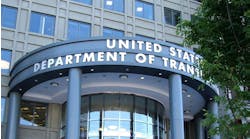I once read that there were only two days out of an entire calendar year in which no professional sports—baseball, football, hockey, and basketball—were scheduled to play a regular season game. Those two days? The days immediately before and after Major League Baseball’s All-Star game. COVID-19 has certainly redefined that trivia question since we had gone roughly four months without an ounce of competition from any professional sports league. Now that professional sports are up and running again, for a time yet to be determined based on the spiking of the virus, the 2020 season—much like baseball player Roger Maris’ 61 in 1961 or the strike-shortened baseball season of 1994—will almost always be referenced with an asterisk next to it. And I wonder if that will hold true for the trucking industry.
What may certainly present itself as an anomaly, miles traveled by some carriers have risen during this pandemic, while others have experienced a dramatic loss. Regardless, for any of those individual miles, exposure to risk has noticeably decreased. Our industry has had the luxury of traversing wide-open roads due to state shutdown policies or new work-from-home strategies that businesses implemented in efforts to keep employees safe.
As everyone seemed to shelter in place, truck drivers, representing the tip of the spear in the battle against COVID-19, traveled mostly unencumbered through traditionally congested areas with relative ease. In saying that, what effect will this have on our industry’s accident record and invariably insurance premiums over the next year or two? The asterisk placed on this year could play a pivotal role as we look to define the effects of COVID-19 on our industry.
It’s no secret that insurance premiums are on the rise. In fact, in a Truckload Carriers Association (TCA) straw poll, our carrier members averaged a 15% increase in premiums over the previous year. While we won’t construe that poll as scientific in any form, there is some truth to the fact that if your premiums decreased or even remained stagnant over the previous year, you could be referred to as a unicorn or yeti, meaning that your renewal would be perceived as a tall tale or fictitious by every stretch of the imagination.
Premiums aside, my belief is that the reduction in exposure should almost always be a factor in the safety performance of a motor carrier. The National Highway Traffic Safety Administration maintains its Fatality Analysis Reporting System database, which tracks accidents across the country, and I would imagine that 2020 will play out as a year that represents a downturn in fatality accidents, which have been on the rise since 2009. I am also certain that the same correlation will play out when TCA members begin submitting their fleet vehicle accident ratio per million miles traveled in our 2020 Fleet Safety Contest. That shameless plug is a feeble attempt to lure carriers to truckload.org and submit their data before the deadline is up.
With carriers operating in a safer fashion or experiencing a wide open travel lane for the time being, how will this play out in terms of insurance premiums? That remains to be seen, especially on the heels of language introduced to the House INVEST in America Act that would raise the minimum liability levels from $750,000 to $2 million. While this language is not expected to move at this time, it certainly heightens the level of conversation surrounding the issue of minimum liability insurance at a time when nuclear verdicts are being awarded at an unprecedented rate, and tort reform is desperately needed in all 50 states. Adding further fuel to the fire, it seems like not a week goes by without a carrier closing its doors and citing the dramatic rise in insurance rates as a reason for shutting down.
The conversation surrounding minimum liability insurance levels will play out in the years to come, the main question being what exactly is the correct level required for operation? I think we can all agree that at any level, whether it is $750,000 or $2 million, these dollars should not be used to line the pockets of plaintiffs’ attorneys across the land. Perhaps we should raise the cost of billboard advertisements along interstates in which these attorneys promote their practices, and add those dollars to the victims of accidents that so desperately need them.
No matter how 2020 plays out, whether there is an asterisk or not, liability insurance and its corresponding premiums continue to be at the forefront of trucking conversations. Accident frequency certainly plays a role in most insurance quotes. While I am certain these frequency rates will decrease this year, the most important practice of all will be demonstrated in the company that exhibits a passion for reducing accidents.




